Does Emmanuel Macron hope to set up a "
government of national unity
"?
In any case, this is what Fabien Roussel, Communist MP, elected under the banner of NUPES, said, received Monday, June 21 at the Elysee Palace as opposition leader by Emmanuel Macron.
“
He asked me if we were ready to work in a government of national unity.
“A proposal declined on all sides: “
Certainly not
”, replied Michel Barnier, former UMP minister.
Sébastien Chenu, RN deputy, is "
not convinced
".
For François Bayrou, president of the Modem and yet close to the President: “
there will be no national unity.
It's a nice ideal, but it won't happen.
“Even Clément Beaune, current Minister Delegate in charge of Europe, “
believes little
in it ”.
Read alsoLegislative 2022: beaten, Emmanuel Macron plunges into uncertainty the day after
What is hidden behind national unity, this banner brandished by the executive as a "
solution to get the country out of the crisis
"?
“
The simple definition is a government in which all political forces, or almost, are represented
”, explains to
Figaro
Armel Le Divellec, professor of public law at the University of Panthéon-Assas.
Today, a government of national unity would thus be made up of members of the Republic on the move, Republicans but also Frontists and supporters of Nupes.
“
As part of a national union, it would make no sense to exclude RN or NUPES,
adds the professor.
They are fully part of the political landscape after these elections.
“The simple definition is a government in which all political forces, or almost, are represented.
»
Armel Le Divellec, professor of public law at the University of Panthéon-Assas.
1914-1945: national unity as a remedy for war
Above all, “
a government of national unity must face a particular challenge,
adds Guillaume Tusseau, professor of public law at Sciences Po Paris
, such as a war, a catastrophe.
Such an initiative has been invoked twice in history: in 1914 before the First World War and in 1945 with General de Gaulle to "
rebuild France
".
On August 4, 1914, Raymond Poincaré, then President of the Republic, addresses the assemblies meeting in extraordinary session to deal with the invasion of Germany.
“France will be heroically defended by all her sons, nothing of whom will break the sacred union before the enemy
,
”
he boasted, bringing the expression “
national union
” to public debate for the first time.
.
Three days earlier, following the assassination of Jean Jaurès, the Socialists (SFIO) joined the government.
In the process, the CGT also lowered its arms to unite in the face of adversity.
Read alsoMaxime Tandonnet: “French political culture does not lend itself to a model of national unity”
However, this cloudless political sky did not last long.
From 1919, the right broke away from the sacred union to unite in a "
national bloc
", gathered around George Clémenceau.
The left is united under the “
Democratic Alliance
”, with the Radical-Socialists and the Republican-Socialists but without the SFIO.
In the legislative elections of 1919, the "
national bloc
" won 433 seats against 180 for the "
Democratic Alliance
".
It was then necessary to wait for 1944 and the Liberation to see a national union appear again.
Around General de Gaulle, gathered within the provisional government of the French Republic (GPRF) men close to the National Council of the Liberation under the label of the Popular Republican Movement (MRP), but also socialists and communists.
The latter, strongly supported by the French people during the legislative elections in October 1945, brought five men of their rank into the government: Maurice Thorez, Ambroise Croizat, François Billoux, Marcel Paul and Charles Tillon.
Thus, Charles de Gaulle presents to the National Constituent Assembly "
the Government of national unity [which] marks, in terms of its composition and its intentions,
".
To read also Mathieu Bock-Côté: "
Charles de Gaulle: the one dreamed of by the time and the real one
"
Once again, this political truce did not last long.
In 1946, the General left office because
“the exclusive regime of parties has reappeared.
I reprove him.
But, unless I establish by force a dictatorship which I do not want, and which would no doubt turn out badly, I do not have the means to prevent this experience”.
Macron "
dramatizes the issue
"
Does the current political situation justify the establishment of a government of national unity?
For Olivier Dard, professor of political history at the Sorbonne, "
we must compare what is comparable
".
In both historical examples, France faced an existential threat, not a political difficulty.
Another element that differs, “
in 1945, the parties gathered around the common program of the National Council of Resistance,
continues the historian.
Which is currently not the case.
»
A difference also raised in his own way by Fabien Roussel facing Emmanuel Macron: “
We need a 'high level' project, not petty politics with small checks.
We need a major investment policy with major reforms.
In 1945, we created social security and it still lives.
It is from this level that we must carry the ambition for the country.
We, if it is at this level, we are ready to participate.
“Consequently, if Emmanuel Macron hopes to recreate unity around his project, “
he dramatizes the issue,
criticizes Guillaume Trusseau.
It highlights a country that is ungovernable, even in danger, when there is no risk that France will collapse.
»


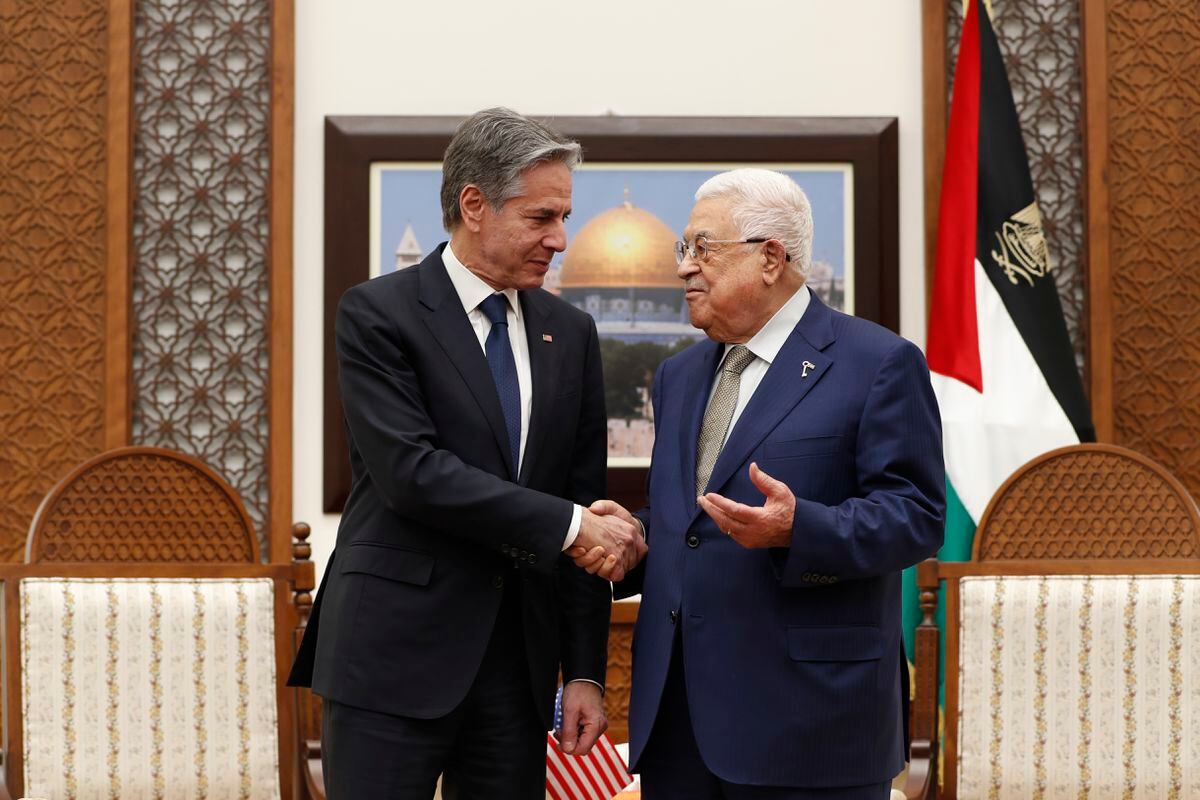
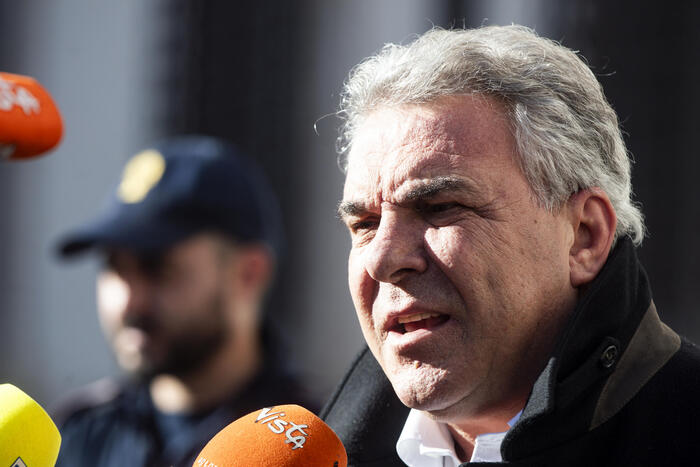

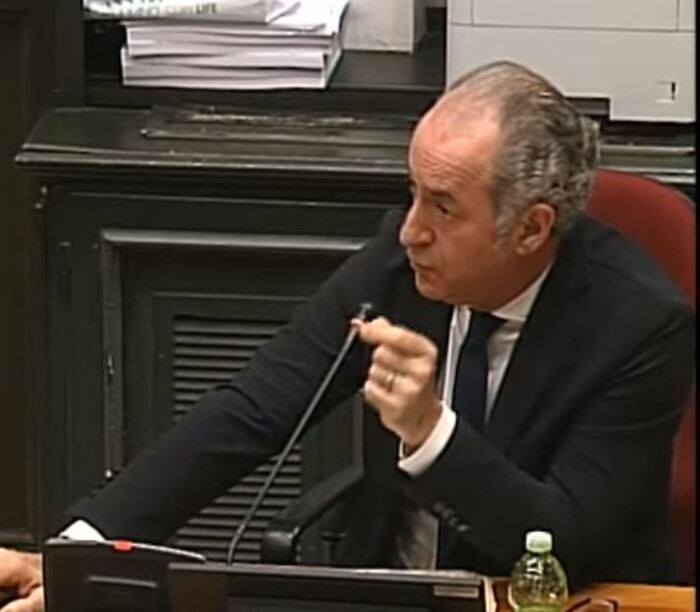
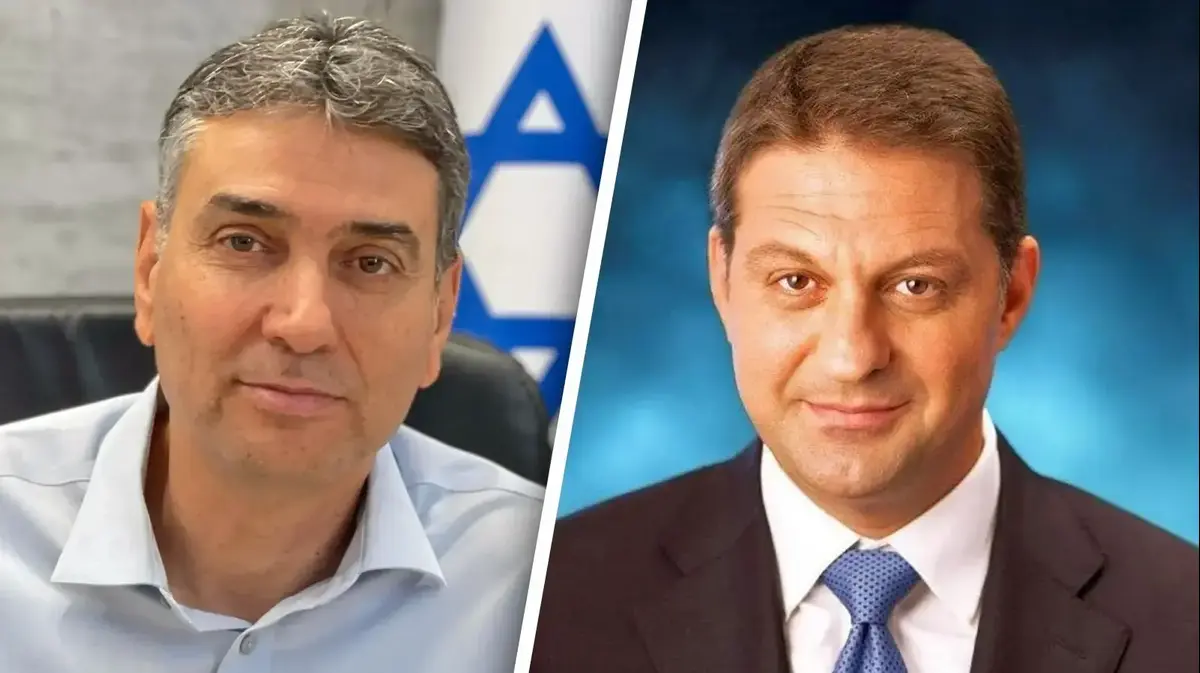
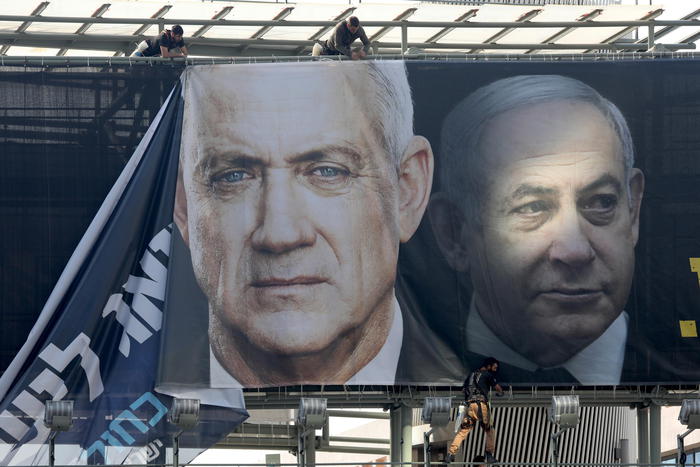
/cloudfront-eu-central-1.images.arcpublishing.com/prisa/C4JE3LB6ZJWHFQWKTFD4Y3SAQE.jpg)

/cloudfront-eu-central-1.images.arcpublishing.com/prisa/2C5HI6YHNFHDLJSBNWHOIAS2AE.jpeg)




